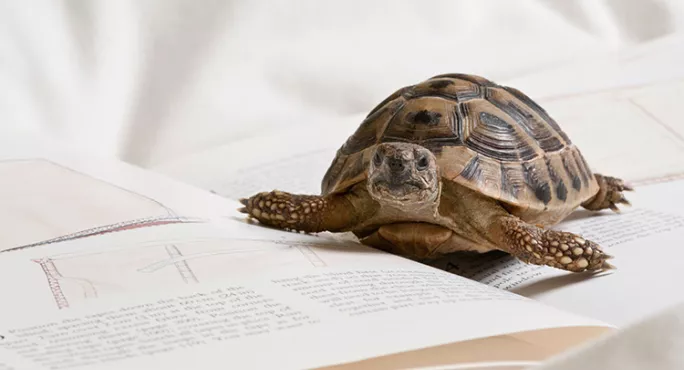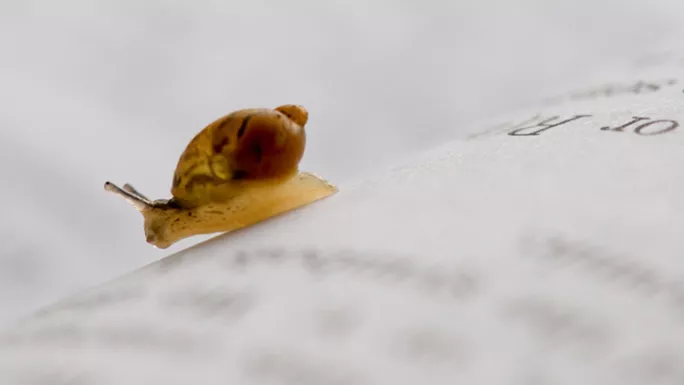
- Home
- KS2 Sats: why and how we targeted tier 2 words
KS2 Sats: why and how we targeted tier 2 words

“He won the race! He won the gold medal! He was very happy!”
Happy? Really? After years and years of hard work, dedication, not to mention the blood, sweat and tears, is he really just “happy?” Is that the most effective word choice?
This is the conversation I had with my Year 6 pupils this week and it is a conversation I have had so many times with children over the past 10 years.
As educators, we spend a lot of time talking about pupils using “effective vocabulary”, but how can we expect children who have not been exposed to a breadth of vocabulary in their lifetime to have a range of words to choose from?
Quick read: Teacher and author Alex Quigley details how to close the vocabulary gap
Quick listen: What every teacher needs to know about grammar
Want to know more? Is the vocabulary gap as important as it is claimed?
Research tells us there are strong links between vocabulary size and academic achievement. Indeed, much of the focus of education debate over the past 12 months has been on the how and why of teaching vocabulary to children in the primary phase.
Some of this has been useful to me as a teacher, some of it less so. Picking through the research, and talking to other teachers, what has worked best for me?
Which words to focus on?
It is important when teaching vocabulary to focus on the right type of words. While topic specific words have their place, it is worth considering how frequently they will need to use the words ‘sarcophagus’, ‘wattle’ and ‘daub’ in their day-to-day life.
Beck and McKeown (2002) recommend that teachers consider the following when choosing vocabulary to explicitly teach:
-
How generally useful is the word?
-
How does the word relate to other words, to the ideas that students know or have been learning?
-
What does the word bring to a text or situation?
A model frequently referred to in schools is the three “tiers” of vocabulary.
Tier 1 being the everyday words encountered in daily conversation, eg dog, go, happy, play, sad. These usually do not need to be specifically taught.
Tier 2 words are those that provide access to more complex topics and discussions outside of the everyday, eg relative, vary, frown, swoop, hesitate.
Tier 3 words are those which are relevant for a specific subject or content area and what we would often call “topic words”, eg lava, circumference, aorta, sarcophagus.
Many of us tend to teach the Tier 3 words, but what I think we really need to focus on are the Tier 2 words, as these are the ones that are transferable and most useful.

How to teach them?
When you come across a Tier 2 word the children do not understand - in any teaching context - rather than just giving an explanation, use it as an opportunity to explicitly teach vocabulary.
I use this sequence as a quick, interactive way to embed a new word:
-
Say the word aloud, children echo.
-
Give a simple definition, children echo.
-
Use it in a simple sentence.
-
Say and repeat again, then reverse.
For example, “ancient”.
-
Ancient (children repeat)
-
Very old (children repeat)
-
The ancient coin was hidden.
-
Ancient - very old, very old - ancient.
It’s quick, easy and if you do it once every lesson, that’s approximately five new words a day. Twenty-five new words a week!
And if you repeat the process when children still struggle to remember the definition, it sticks.
Modelling
It sounds really simple, but how aware are we of the vocabulary choices we use with the children? How often do we consciously model using the most effective vocabulary?
Probably not often enough if we are honest.
Try varying the use of your own language in class and see how it begins to translate into the children’s writing.
For example, when a child completes a good piece of writing, use alternative vocabulary like “exceptional”. When they have tidied up well, you could say it is “immaculate”. When the noise level gets too high, ask them to “reduce the volume”. Keep track of the words you are using, you will be shocked how frequently you rely on the same words and phrases.
Vocabulary Working Wall
Many of us have a number of subject or topic related working walls in our classroom, but why not have a specific working wall for vocabulary? Build it up every time the children encounter a word they haven’t met before. Invite the children to add to it from their independent reading. Encourage the children to use the words on the working wall appropriately in their writing by attaching rewards to each word, eg house points/merits/dojos each time they use them. This will help prevent it from becoming wallpaper and become a useful classroom resource.
Impact?
While we are still in the early days of implementing these strategies, there is already a noticeable improvement in the quality of language the children use in their day-to-day conversations and interactions, which is starting to filter more naturally into their writing across different contexts and text types.
There is also a genuine interest in words and curiosity towards language. The key to this is commitment. Remembering to take the time every day to highlight and explore new words.
Yes, it is sometimes a bit frustrating when you are in full swing of an Oscar-worthy dramatic reading of The Twits and then have to pause to do your vocab teaching, as you notice a perfect Tier 2 opportunity but, trust me, it is worth it.
Before you know it, it’ll be part of the daily routine and you will have a classroom full of “word detectives”.
Rebecca Misselbrook is deputy headteacher at White Meadows Primary Academy in Littlehampton, West Sussex
Further reading
- An EEF report on a vocabulary enrichment programme.
- Professor Ann Castles explains why phonics is crucial - even for those who don’t “get it”.
- Tes talks to professor Jessie Ricketts about the importance of language.
Register with Tes and you can read five free articles every month, plus you'll have access to our range of award-winning newsletters.
Keep reading for just £4.90 per month
You've reached your limit of free articles this month. Subscribe for £4.90 per month for three months and get:
- Unlimited access to all Tes magazine content
- Exclusive subscriber-only stories
- Award-winning email newsletters
You've reached your limit of free articles this month. Subscribe for £4.90 per month for three months and get:
- Unlimited access to all Tes magazine content
- Exclusive subscriber-only stories
- Award-winning email newsletters


